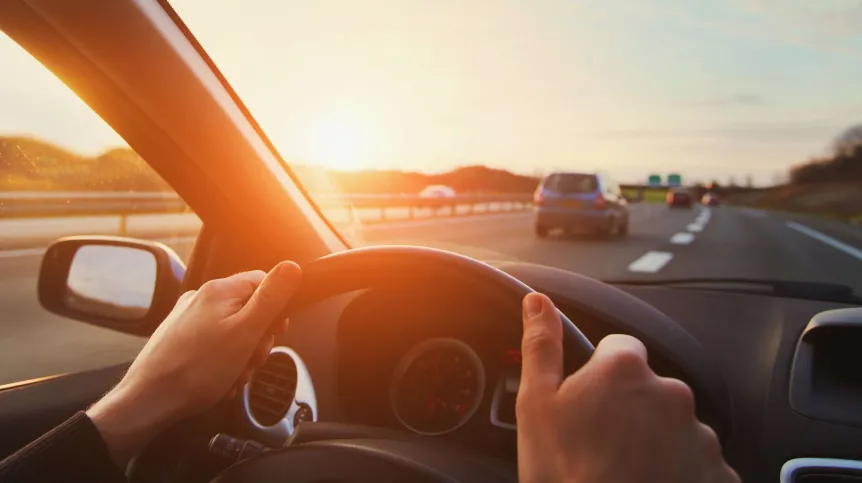
The increase in air pollution in cities is related to increased traffic during morning commutes to schools, according to research from the University of Warsaw. Scientists believe that the situation can be improved by changing the habits of children and parents, not by traffic bans.
'Air pollution and the use of private cars in Poland are among the highest in Europe', Dr. Anna Nicińska told journalists. The researcher from the university’s Department of Technological Transformation DELab at the Faculty of Economic Sciences heads the CoMobility project devoted to air quality in cities, among other things.
'What would happen if parents stopped driving their children to school by car, and instead drove straight to work if they had a long way to go, or took the bus or train instead of their car? Children would walk to school or commute by bike or scooter', said Dr. Nicińska.
The authors of the study simulated conditions in which parents would not be able to reach their child's school by car. The simulation showed that if all roads to schools were closed, e.g. due to traffic bans, most of the parents' cars would be replaced by other private cars anyway.
'People drive cars. They make decisions whether to get on the bus or start the car. Only working with people and trying to think about the reasons for their behaviour and how this behaviour can be modified - can bring real change there', says co-author of the study Professor Anna Giza-Poleszczuk, Dean of the Faculty of Sociology at the University of Warsaw.
The sociologist adds that solving various problems together is becoming an increasingly common practice in the world: 'We have to stop telling people what to do, because they will either not understand or not take it to heart. However, when we work together and people participate in creating a solution, firstly - they understand it, and secondly - they believe in it'.
That is why the scientists involved in the CoMobility project also worked with the most interested parties - children. 'They know best what the surroundings of their school look like, what they like about it and what they don't. And what would make them more willing to get to school in a different way than by car', says Dr. Nicińska.
Based on the opinions of children, the scientists created several solutions that they consulted with parents, residents of the school area, neighbourhood communities and the Warsaw City Hall.
For example, the students came up with an outdoor game that the researchers managed to introduce to the public space. 'It consisted of painting various pictures on the sidewalks on the way to school. On the way to school, you could collect points by jumping or avoiding obstacles. The children were very happy because it turned out that they liked riding scooters to school the most', says Dr. Nicińska.
As part of the project, maps of access by bike, scooter and public transport to Warsaw schools participating in the program were also created (Primary School No. 34 at Kruczkowskiego, Primary School No. 377 at Trocka 4 and Primary School No. 218 at Kajki).
The research also resulted in a map of air pollution in Warsaw in 2019. 'Based on data from the reference stations of the Institute of Environmental Protection, our partners from Norway modelled the air quality for the entire Warsaw agglomeration', Dr. Nicińska continues.
The information collected as part of CoMobility also includes data on the intensity of car traffic at different times of the day and in different districts of Warsaw (this also applies to 2019).
The models show that air pollution is higher on the outskirts of Warsaw (although this is also related to the fact that most buildings in the city centre have central heating), and in the morning hours, especially around schools.
Scientists are now working on similar comparisons for 2023.
CoMobility is a trans-disciplinary research project, in which experts analyse attitudes and behaviours related to mobility, in particular alternative transport to private cars. The team consists of scientists from three Warsaw universities (The University of Warsaw, Warsaw University of Technology and Warsaw School of Economics), physicists from the Norwegian climate and environment research institute NILU, anthropologists from the Finnish Fridtjof Nansen Institute, members of the Warsaw non-governmental organization Fundacja 'Na miejsce' and representatives of the city of Lublin. (PAP)
PAP - Science in Poland
abu/ zan/ kap/
tr. RL













